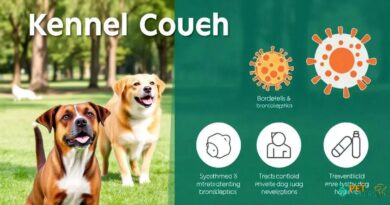What is: Xenobiotics in dog health management
What are Xenobiotics?
Xenobiotics are substances that are foreign to a living organism. In the context of dog health management, these compounds can include a wide range of chemicals, such as pharmaceuticals, pesticides, and food additives. Understanding xenobiotics is crucial for pet owners and veterinarians alike, as these substances can significantly impact a dog’s health and well-being.
The Role of Xenobiotics in Dog Health
Xenobiotics can have both beneficial and harmful effects on dogs. While some xenobiotics are used therapeutically to treat various health conditions, others may pose risks, leading to toxicity or adverse reactions. It is essential for dog owners to be aware of the potential sources of xenobiotics in their pets’ environment and diet to ensure their safety and health.
Common Sources of Xenobiotics in Dogs
Dogs can be exposed to xenobiotics through various sources, including contaminated food, environmental pollutants, and medications. For instance, certain dog foods may contain additives or preservatives that are classified as xenobiotics. Additionally, exposure to pesticides in the home or yard can lead to the accumulation of harmful substances in a dog’s system.
How Xenobiotics Affect Dog Health
The effects of xenobiotics on dog health can vary widely depending on the type and amount of substance involved. Some xenobiotics may cause acute reactions, such as vomiting or diarrhea, while others can lead to chronic health issues, including liver damage or endocrine disruption. Monitoring a dog’s health and recognizing signs of xenobiotic exposure is vital for timely intervention.
Detoxification Mechanisms in Dogs
Dogs possess natural detoxification mechanisms that help eliminate xenobiotics from their bodies. The liver plays a crucial role in metabolizing these substances, converting them into less harmful forms that can be excreted through urine or feces. Understanding how these detoxification processes work can help pet owners make informed decisions about their dog’s health management.
Veterinary Approaches to Managing Xenobiotic Exposure
Veterinarians often employ various strategies to manage xenobiotic exposure in dogs. This may include recommending specific diets that minimize exposure to harmful substances, conducting regular health screenings, and providing treatments to support liver function and detoxification. Collaboration between pet owners and veterinarians is essential for effective health management.
Preventing Xenobiotic Exposure in Dogs
Preventing xenobiotic exposure is a proactive approach to maintaining a dog’s health. Pet owners can take several steps, such as choosing high-quality dog foods, avoiding the use of harmful chemicals in the home, and being cautious with medications. Educating oneself about potential xenobiotics and their sources is key to safeguarding a dog’s well-being.
Research on Xenobiotics and Dog Health
Ongoing research continues to explore the impact of xenobiotics on dog health. Studies aim to identify specific compounds that pose risks, understand the mechanisms of toxicity, and develop guidelines for safe exposure levels. Staying informed about the latest findings can empower pet owners to make better choices for their dogs.
Conclusion: The Importance of Awareness
Awareness of xenobiotics in dog health management is crucial for ensuring the well-being of our furry companions. By understanding what xenobiotics are, their sources, and their effects, pet owners can take proactive steps to minimize risks and promote a healthier lifestyle for their dogs.




